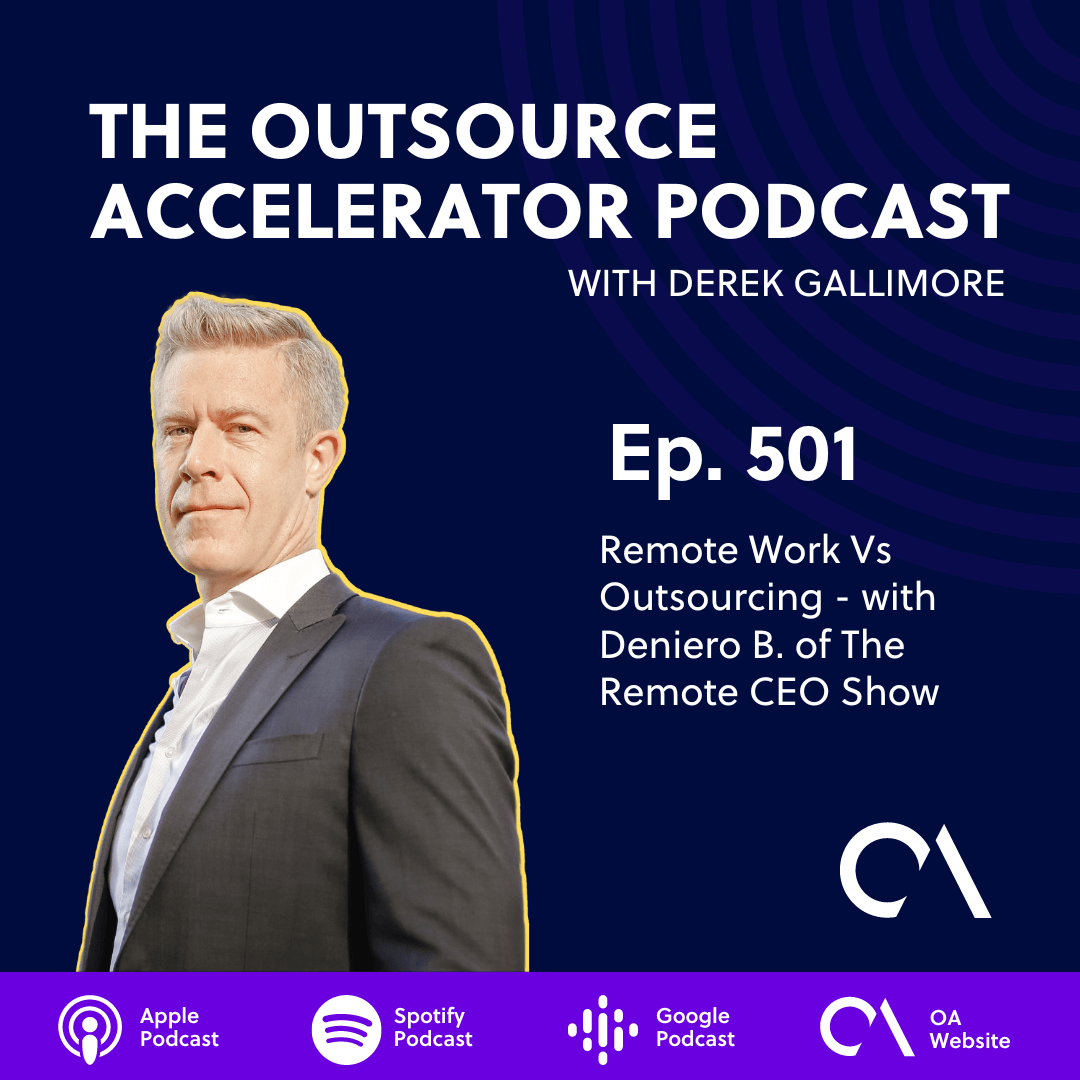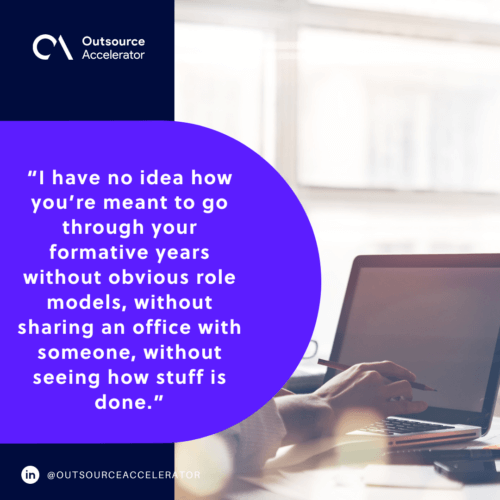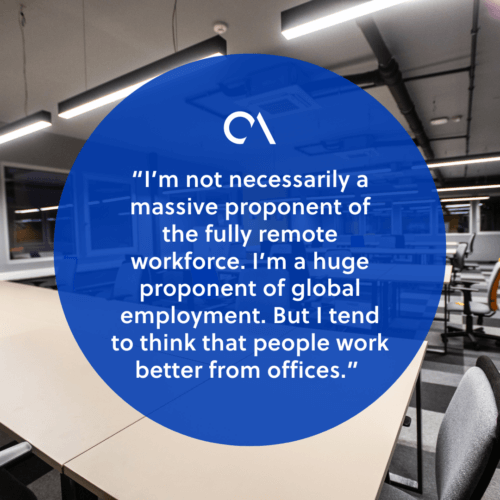Remote Work Vs Outsourcing – with Deniero B. of The Remote CEO Show

This week, Derek is interviewed by Deniero Bartolini, host of The Remote CEO Show. They cover the advantages of working onsite, training potential entrepreneurs, and discuss the process of building a worthwhile team.
The entrepreneurial direction
Derek opens by describing his choice to be an entrepreneur.
“I’ve been an entrepreneur in my blood for as long as I can remember.
I started with property development [and] built my second company after the financial crisis of 2008, [then] bootstrapped my second company to about 20 million revenues. And now I’m on my third company, which is also bootstrapped.”
When asked about hiring and training young people who have the potential to be entrepreneurs themselves, he says that while he has little experience with direct hiring, it ultimately comes down to the person.
“It’s like Russian Roulette. Everyone starts off [as] a beginner, [but] some people just continue to adapt and improve and go to the next level.
Some people find their natural ceilings, and some people keep on going. I think you can take raw capability [and] people can learn as long as they are motivated and they have raw intelligence.”
Benefit of an office culture
The conversation switches gears to remote work vs onsite work.
Derek admits that he feels for the younger generations that are coming into the workforce and trying to make their way.
“I have no idea how you’re meant to go through your formative years without obvious role models, without sharing an office with someone, without seeing how stuff is done, without sharing the floor with senior people.”

Derek then emphasizes his stand on where he feels people work more effectively, with the answer perhaps being a surprise to many of his listeners.
“I’m not necessarily a massive proponent of the fully remote workforce. I’m a huge proponent of global employment. But I tend to think that people work better from offices.”
He feels that offshoring itself is a viable business strategy, but sees a lot of advantage in getting people in an office for collaboration.
At the same time, he admits that it’s difficult having a blanket stance on it.
“There are massive, massive pros to working remote, but there’s also huge cons, and I do feel for the younger generation that it leans more heavily to the cons.”
He clarifies that his main concern is whether the individual is working for their own benefit, or for the team’s greater mission.
“Coming out of COVID, a lot of the choice went to the employees because it was an employee-led environment back then. And of course, ‘I want to work from home, I want all these perks and benefits’
And it’s like, is that for the benefit of the team? Or is that so you get an easy go of things? Is it really so you can work harder, be more productive, push harder for the team?
And I really question the motivation of a lot of this sort of remote work.”

Building cohesive teams
Deniero echoes Derek’s sentiment and talks about hiring people with the right kind of passion for their organization.
Derek admits that with many organizations, it comes down to who does great in interviews.
“Personally, I’ve never been good at interviews myself. Maybe that’s why I’m an entrepreneur,” he jokes.
More seriously, he brings up that employee motivation matters, drawing a parallel with how sports teams function.
“The team is on the front of the jersey, and the name of the individuals [are] on the back, and you have to be playing for the betterment of the team first.
And if the team prospers, then the individuals prosper.”
Within Outsource Accelerator, Derek is content to leave many of the internal communications up to his team while he provides support.
He acknowledges the social culture of the Philippines, which his company accounts for.
“The Philippines is a very, very strong community, [so] it’s essential to have Halloween [and] Christmas parties, summer parties, retreats, we do all that sort of stuff.
A lot of it is little departmental things, subculture things. When people are in the office together, stuff just happens. [And that’s] much harder when people are at home.”
Derek closes by announcing the launch of the OA Outsourcing Calculator, which people can use to find pricing information on the specific roles they need.
He’s also written a book, Inside Outsourcing, that serves as the authoritative guide to global employment and outsourcing.
You may contact Derek via his LinkedIn profile.







 Independent
Independent




